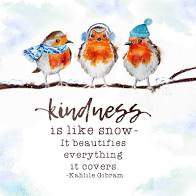The fields of biochemistry and genetics have found that our genes actually depend on many nutrients to do their assigned jobs.
Nutrients can affect the genetic array your parents provided you with by either turning on (expressing, up-regulation) or turning off individual genes.
Each of us has a unique combination of advantaged and disadvantaged genes that can affect our nutritional needs. If we know which genes are disadvantaged, we can consume specific nutrients targeted to help compensate. What may have sounded like science fiction a few years ago is now becoming a reality thanks to recent advances in both genomics and nutritional sciences.
Nutrigenomics is in the mainstream news more and more. Just what is “nutrigenomics?” Dr. Keller: It’s been estimated that over half of the population of the U.S. are taking nutritional supplements, yet I’d predict that the vast majority of people are still uncertain as to what they really need to best supplement their diet in order to help protect their overall health. This uncertainty or “shot-gun” approach leads to over (or under) consumption of vitamins, minerals and active ingredients. For the most part, the very nutrients the body craves never make it in to the shopping cart.
Nutrigenomics is the emerging science of utilizing personal DNA-based information to help people better determine which nutritional changes, lifestyle changes and nutritional supplements, for example, that will best serve their individual needs in the area of preventive health and aging.
What drew your interest to nutrigenomics? Dr. Keller: “More patients are asking about vitamins, supplements and what foods are best to consume to help maintain their health.
In the past, many Doctors have been poor resources for answering these questions, partly because we had no real training or credible scientific information about the subject. Now, with a simple cheek swab, physicians can tell a patient what is lacking in their diets and what supplements can be beneficial. This takes nutrition into a whole new dimension. Nutrigenomics changes nutrition from being subjective to objective. We can measure and monitor what to eat, what to add to our diets and what elements of nutrition can help people achieve optimal health. With Nutrigenomics, medicine has moved into the 21st century by becoming highly personalized and what is more personalized than what we eat?"
What can our genes tell us about our individual biochemistry? Dr. Keller: “Life, in one aspect, is a continual series of biochemical reactions. In order for these reactions to occur properly, proteins, enzymes and substrates are needed. Our genes give us the necessary tools to make the biochemical reactions occur.
Consider this analogy. Our body is like a factory. Our genes created the blue print to produce the production machinery to make widgets.Our imaginary factory comes complete with all the equipment needed to make these widgets. But that is not enough. We need raw materials to build the widgets, specific raw materials determined by what our genetic machinery needs to construct our widgets. When our factory gets its delivery of raw materials, the machines can put together our products and throw out supplies not necessary and discarding the by-products of manufacturing the widgets. Our body is like this factory but every human being has a unique factory that produces in a unique way its own widgets. Therefore, each human factory needs different amount of nutrients and building blocks to create our ‘widgets’.
Nutrigenomics helps the physician see the blueprints and better understand the raw materials required by our exclusive machinery. Do you see nutrigenomics as a new tool to help us determine our individual nutrient needs? Dr. Keller: Absolutely! Why give our factories the wrong materials and fuel. It’s analogous to putting automobile fuel in a jet engine. As you know, we are what we eat. When we supply our machinery with the incorrect raw materials, waste products junk up the works. Incomplete or bad food causes toxic by-products which accelerate the aging and disease process. The free radicals produced by non-specifi c foods and supplements wreak havoc on our body. Now, for the first time in medical history we can individualize our nutrition to fi t what we were born to eat. Where is your nutrigenomics research headed? What is on the horizon?
In addition to my work with the Keller Medical Institute, I’m on the Scientifi c Advisory Board for GeneLink BioSciences; GeneLink is one of the pioneers in this area of creating DNAbased assessments as the nucleus for personalized health and wellness products and services. GeneLink’s research is focused in several important areas such as SNPs related to DNA integrity and repair, neuro and cardiovascular health and so on. We’re continuing to focus on increasing evidence that oxidative stress has a major impact on a person’s overall health so we’re examining certain gene-snps that predict a variety of oxidative stress related functions. Just as important, we’re focusing on the research and development of nutrients that can help modulate or compensate for these disadvantaged functions.
Breaking News on Supplements & Nutrition-Americans want personalized nutrition,
- According to a recent survey, a large majority of American consumers are ready to embrace nutrigenomics and the concept of personalized nutrition.
- According to the online survey of 1,000 American adults, over three quarters were interested in learning more about nutrigenomics.
- Around one third of respondents (32 percent) said they were ‘very interested’ in learning more, while 47 percent are ‘somewhat interested’ and 17 percent said they were not interested.
- In general, consumers who believe they are in ‘excellent’ health (23 percent) are most likely to report knowing ‘a lot’ about nutrigenomics, compared to 7 percent of those reporting ‘good’ or ‘very good’ health and 3 percent in ‘fair’ or ‘poor’ health.
Dr. Robert P.K. Keller, Founder and
Medical Director of the Keller Medical Institute



